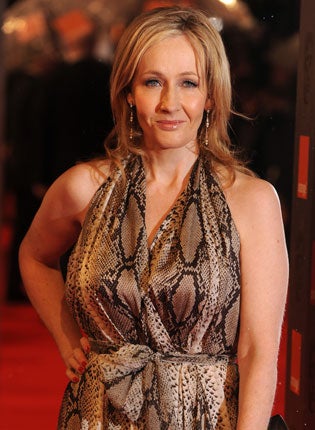Who needs a literary agent?

It's till not clear why JK Rowling deployed the Expelliarmus spell against her long-standing literary agent, Christopher Little – ending one of the most lucrative relationships in publishing after 16 years – but in the currently jittery and uncertain world of publishing there won't be any shortage of people filling the gap with guesswork.
Imagine you're living in one of those houses near a crumbling Norfolk cliff. When you moved in 40 years ago, the sea was half a mile away and a selling point. Now it's nibbling at the garden wall and every creak triggers a chilling question mark. Is this just a bit of harmless settling or the first sign of a terminal landslide? Should agents be getting clammy as they think about the foundations, or should it be publishers?
One caveat is important. You can't draw any general truths about the publishing industry from JK Rowling's experience of it because she is an industry in herself – a canny protector of the Potter brand and a brilliant exploiter of it – as her recent announcement of an exclusive website to sell e-book versions of the Potter novels confirmed. There just isn't a repeatable recipe for an unprecedented phenomenon. But her recent decisions do illuminate some shifts of power in publishing. E-book self-publishing is easy and can already claim its first million-selling author. And even creating a real book can be done by pretty much anyone now. A website like Lulu.com will take you through the process in a series of mouse clicks, complete with tools like Calculate Your Spine – not a test of entrepreneurial nerve, but a simple way of working out how thick your volume is going to be. Bridging the gap between printer and reader is still tricky, of course, but with print-on-demand and online selling, even that needn't be as forbidding as it once was.
At the same time some of an agent's functions can be had, for a fraction of the cost, from specialists. Robert Bennett, an American lawyer, has done very nicely acting as "author's representative" for big-hitting biographies (including Bill Clinton's and Tony Blair's), charging an hourly rate, rather than 15 per cent. Even at $1,000 an hour, he's a snip.
The truth is, though, that publishers have far more to fear from recent developments than agents do. For one thing, although JK Rowling appears to relish running a business, most authors don't. They want to maximise the time they can spend in an invented world and minimise the time they spend negotiating the more boring elements of this one. For another thing there's one crucial service that no software can replicate – the judicious, sympathetic and candid eye of a literary editor, which increasingly is supplied by an agent or no one. And the cannier agents are surely going to notice soon that – with a bit of creativity and a bit of thought – they can do the things that they once left to others. How long, I wonder, before the other name on a spine is that of the agent and not the publisher?
Join our commenting forum
Join thought-provoking conversations, follow other Independent readers and see their replies
Comments
Bookmark popover
Removed from bookmarks